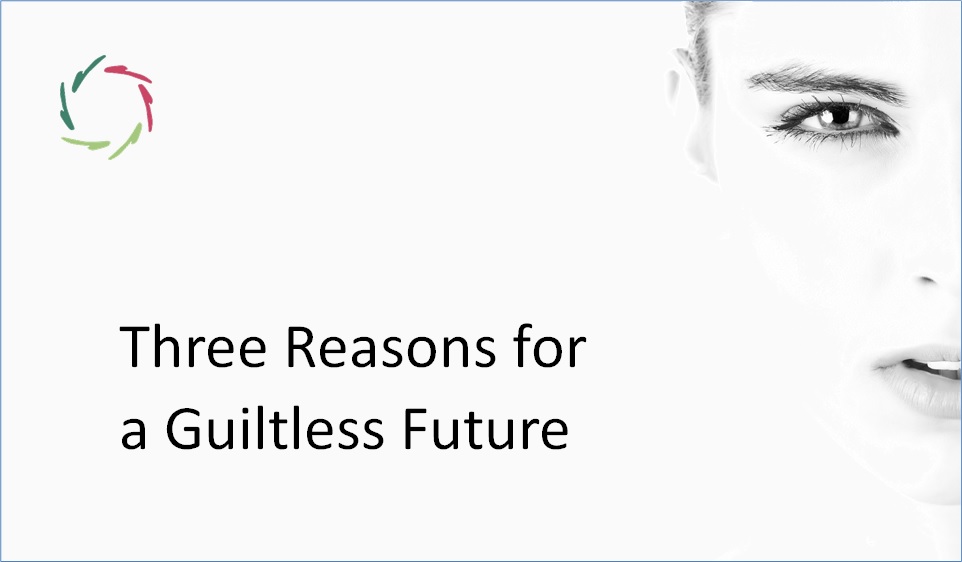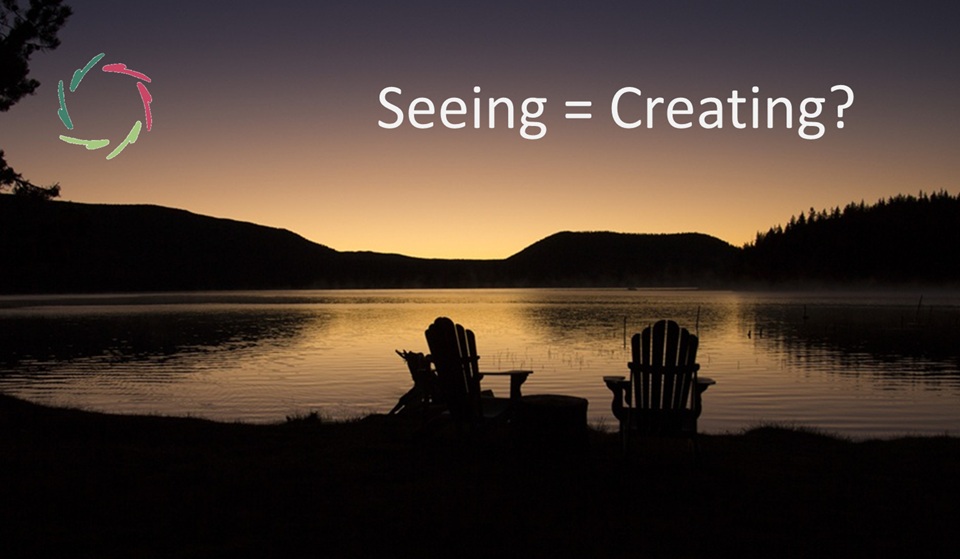Three Reasons for a Guiltless Future

Guilt is as much an illusion as is the omnipotence of mere-ego within one’s mind (total self). Humanity is traveling toward the evaporation of both – joint – illusions. Great, but meanwhile, the path is challenging.
You might read about how responsibility can replace feelings of guilt.
See also the story of ego.
The tip of the top of the iceberg
The total self is an iceberg. Conscious mere-ego is the tip of the top of the iceberg ― thinking there is no ‘I’ except for the ego itself. In this, there is no reckoning with the iceberg except the upper tip.
[Note, by the way, that this is no speculation, but hard-core science, backed by tons of evidence.]
Mere-ego thinks it makes many things happen – including unfortunate ones – which it doesn’t. This way, it places guilt where there is none: at its own doorstep (as well as others’ doorsteps). Mere-ego needs this feeling of guilt. Eventually, it relishes in this because it needs guilt as part of the explanation for its own existence.
Mere-ego has no intrinsic motivation, no ‘energy’ by itself.
How could it have since it’s an illusion? Yet this kind of illusory, emergent existence is reality-related with real consequences. Like: someone may jump out of a window for fear of an illusory monster chasing him.
Guilt gives the illusory impression that there is an intrinsic motivation to the mere-ego. This way, the latter has become the very basis of the Western judiciary system since at least the Byzantine era.
Beneath the tip of the top
Many motivations – thus also motivated actions – come from the rest of the iceberg but are explained by mere-ego as the result of coincidence or ‘some external factor.’ There are many candidates to choose from.
Since the rest of the iceberg is not seen, it can hardly be seen as the source of anything.
Now, imagine.
Imagine mere-ego quite suddenly getting to see the iceberg while still thinking guiltily… This situation risks bringing immense feelings of guilt for tips of tops.
That should be taken seriously! Humans are not made for dealing with a massive degree of guilt. Therefore, there are rightful reasons to counter such feelings.
The following are three main reasons for a guiltless future.
1) The issue itself
Guilt belongs to an age-old view of the human being that just isn’t correct. Inevitably, an increasingly more correct view will be brought to the fore through ongoing science ― whether or not people are ready for this. Science generally doesn’t wait.
Note that technological evolutions may be halted, and scientific insights may be pushed aside. Science itself however – of the basic kind that shows people who they are – is eventually unstoppable.
We need a guiltless future.
2) Oriented toward oneself
Toward oneself, it would be devastating to feel guilty for issues – such as the entire domain of psycho-somatics – where responsibility is direly needed. This keeps people from taking that responsibility, resulting in massive unnecessary suffering, disease, and premature mortality.
An ever-evolving A.I. will show people that they can take responsibility ― therefore, in fact, that they are already having it in-depth. It will be scientifically shown to what a huge degree the mind influences the body in many ways, in sickness and health, in life and death.
We need a guiltless future.
3) Oriented toward others
Toward others, the feeling of guilt and the running away from responsibility would keep creating enemies (guilty ones, of course) — a phenomenon already happening way too much.
Unfortunately, with more technology (and, again, even more so using A.I. in non-Compassionate ways), mere-ego can do more damaging things to others out of guilt and trying to get away from it.
We need a guiltless future.
AURELIS aims to let people see the iceberg.
It is what empathic Openness is about. It is also the Openness that AURELIS points to in many domains.
It’s a challenge. At the same time, it is necessary since the situation becomes increasingly worse as long as this Openness isn’t realized. Without it, we are sleepwalking from world crisis to world crisis.
Wanted, urgently: Compassion
Here lies an immense responsibility for the sciences of the mind.
Unfortunately, it’s a responsibility that is seldom taken.


